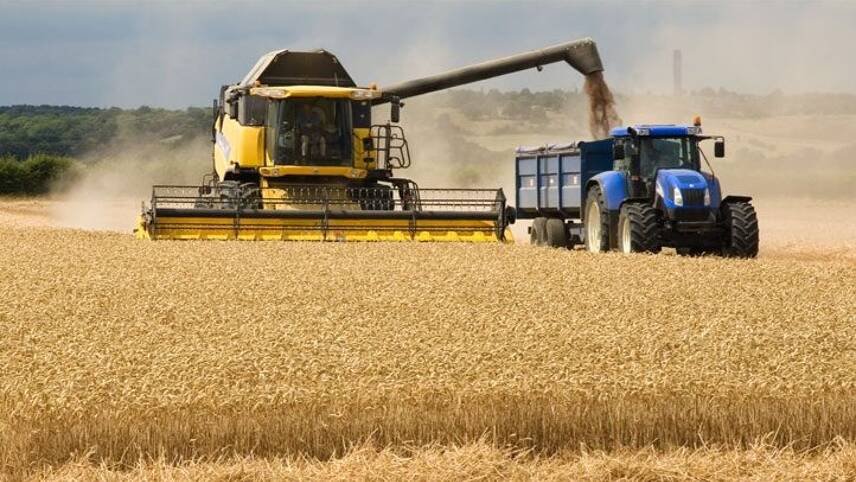Register for free and continue reading
Join our growing army of changemakers and get unlimited access to our premium content

The Strategy was published five months ago and debates in Parliament are ongoing
The call to action, orchestrated by charity Food Foundation and spearheaded by Rathbone Greenbank Investments, comes five months after the initial publication of the National Food Strategy.
This independent review, commissioned by the Government and conducted by Henry Dimbleby (of Leon and the Sustainable Restaurant Association), sets out recommendations for systematic change in the food sector, to tackle pressing challenges such as emissions, nature degradation, waste, food poverty and poor diets.
Recommendations on environmental sustainability include the creation of a land-use map by the Department for Food, the Environment and Rural Affairs (Defra), to inform the creation of nature and carbon sequestration plans; core minimum standards for future post-Brexit trade deals and ambition in implementing the new Environmental Land Management (ELM) scheme detailed in the Agriculture Bill.
Under ELM, farmers will be paid for “public goods” including woodland, flood prevention, soil improvement, animal welfare and carbon sequestration. Payments for soil improvement will come into effect next year, Defra recently confirmed, but many green groups and trade bodies were hoping for higher payments and a broader remit for the scheme.
Also floated in the strategy are measures to reduce red meat and dairy consumption, on a per capita basis, by 33% by 2030.
The new call to action from investors, made in the form of an open letter published on Wednesday (15 December), compels Prime Minister Boris Johnson to ensure that the Government issues a full and proper response to the Strategy as a priority and demonstrates “leadership and ambition” in doing so.
Reporting and other recommendations
The letter calls for a holistic approach, in which the sector’s biggest environmental and social challenges – and their solutions – are interconnected. It implores the Government to “consider the full range of regulatory tools at its disposal”, including mandatory reporting of nutrition and sustainability metrics and well-designed incentives for farmers.
On reporting, the letter states: “Although some businesses are reporting voluntarily, as shown by the Food Foundation’s Plating up Progress work and ShareAction’s Healthy Markets initiative, there is a notable lack of consistency in how metrics are being reported and some sectors are further behind.
“A lack of published data on food industry practices is hindering the ability of investors and other stakeholders to compare performance across the sector and accurately understand what progress is being made.”
It adds that several large food businesses have already stated that they would support the mandatory reporting recommendations in the Strategy, including Tesco, Greggs and Compass Group.
Signing the letter are Aviva Investors, EOS at Federated Hermes, Legal & General Investment Management (LGIM), Rathbone Greenbank Investments, Rathbone Investment Management, Castlefield Investment Partners, the Guy’s and St Thomas’ Foundation, Newton Investment Management, BMO Global Asset Management EMEA, The Health Foundation, Australian Ethical Investment, U Ethical Investors, Capital Fund Management, Jupiter Asset Management, EdenTree Investment Management, Phoenix Group, the Food Foundation and ShareAction.
“From farm to fork, the food industry impacts the full range of ESG topics and has an enormous impact on our climate and biodiversity,” said Aviva Investors’ chief responsible investment officer Steve Waygood.
“Increased transparency will help highlight which food supply chains are addressing their impacts.”
Waygood added: “We also need rules and regulation to change to ensure that finance flows towards sustainable food sources and solutions and away from intensive agriculture. The future of civilisation will depend on whether we pass tipping points that set in motion consequences that we will not be able to stop and the food transition is as much a part of that as the energy transition. Investors have an important part to play in facilitating this much-needed change, but it requires prudential Government action to drive real-world change.”
Meanwhile, in mainland Europe…
The letter comes in the same week that the Netherlands unveiled a £21bn plan to dramatically reduce the numbers of livestock on its farms. The result is expected to be a reduction of around one-third in numbers of cows, pigs and chickens. Proposals include paying farmers to relocate, exit the industry, or shift from intensive to extensive farming methods.
The nation has the highest density of livestock in Europe and is the continent’s biggest meat exporter. It has taken the decision due to challenges containing an overload of animal waste. Farmers have taken to the streets in protest, calling for all measures to be voluntary, and asking the Government to apply the same rules to other high-emitting sectors like aviation and road transport.
Sarah George


Please login or Register to leave a comment.